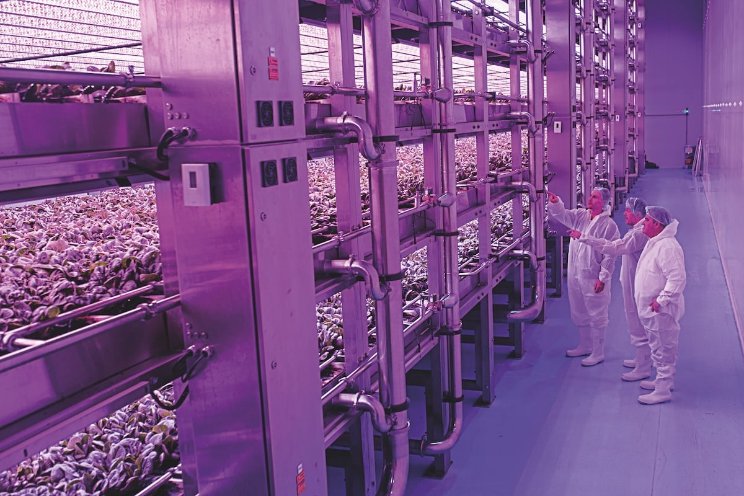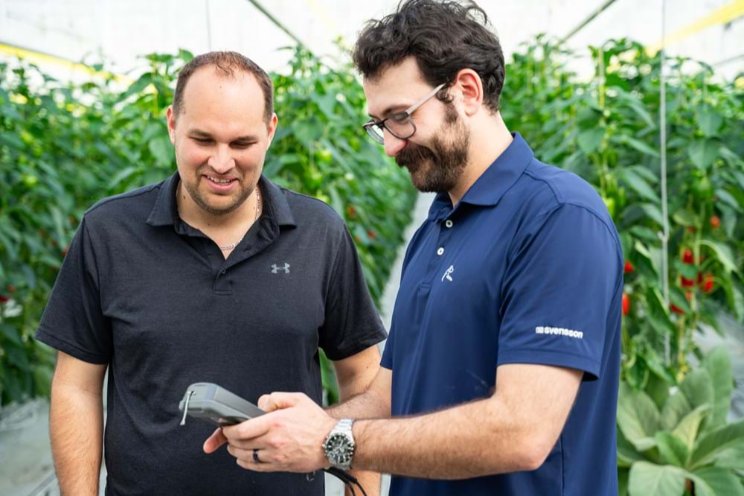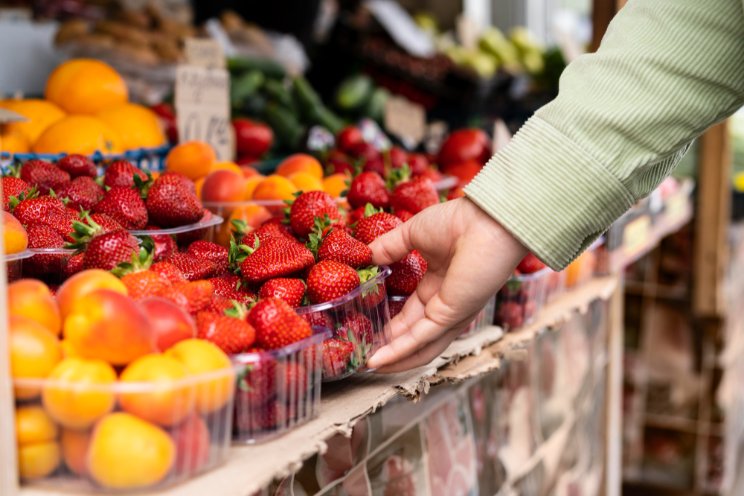Peer-to-Peer grower advice on coming out stronger than ever
Added on 15 June 2020

With this new challenge of COVID-19 hitting us during spring, it has not just affected the Midwest, the coasts, or the U.S., but the entire world during the busiest time in our industry. This obstacle could have crippled a company or an industry, but not us.
Here is a collection of hurdles and challenges that our customers and colleagues at ForemostCo have shared with me over the past two months, along with a series of solutions/opportunities. I believe some of these points have served as excellent springboards to get through this ordeal and come out swinging.
We first have to start off by thanking our lucky stars that many of us fall under an agricultural exemption, as we play an important role in sharing supply chains into and across this country with agricultural food crops. Many grocery and hardware stores have also considered essential businesses and have stayed open, which is another thing for which to be grateful. These two big outlets for our products are still ordering material and keeping their shelves full even after the normal season has passed. Lowe's and The Home Depot have been running ads about gardening and beautifying the home with the family. Vegetable gardens are being put in like never before, somewhat out of caution for an uncertain future, but also for the familial nostalgia they also bring. Tropicals are being sold for indoor usage, and succulents for mixed container projects. Gardening is a way to unite as a country while staying apart with our families to protect our communities.
At the beginning of the shutdown, I spent more than an hour waiting in a checkout line at BJs Wholesale Club and watched as five different families added guzmania bromeliads to their shopping carts full of meat, canned goods, paper towels, and toilet paper. I doubt guzmania bromeliads are a good source of nutrition or have the ability to clean anything up in the restroom, but people want something they feel will bring them a sense of normalcy during this strange time. A flowering plant in the home during spring can do just that.
I've also spent several weekends in lines to get into The Home Depot. On one trip, I overheard two employees working the paint counter talking about the garden center's traffic that morning. Management had opened a single entrance at 7:00 a.m. into the main store, but the first 100+ customers all went to the gardening department. Because of social distancing regulations, the store had to make a second line within the store just to control the flow of traffic into the gardening department. It was extremely encouraging to hear the demand for horticulture products from such a large number of people on a Saturday morning.
I've also heard of a surge in online sales, including from people normally selling to florists and independent garden centers that have now turned to selling online. The millennials are finally buying plants. They just needed to be forced by the federal government to stay in their homes and surf online until they realized that, yes, both hand sanitizer and sansevierias can be bought on Amazon.
I spoke with a customer in Louisiana that has been in the industry for more than 30 years. He says he has never seen so many new/young customers come through his garden center during that time, and he reminded me many will be back again next year, now that they had likely gardened for the first time.
Customers of ForemostCo have shared with us they are using their own websites, along with Ebay, Amazon, Etsy, Instagram, and Facebook, to direct people to purchase individual plants that are shipped directly to the consumer, or even scheduling drive-thru pickups at their farms. One landscape wholesaler I've spoken to sent out availability to homeowners online and staged their orders together for them to be picked up at the farm.
If you have young employees who have worked on a farm already and are constantly distracted by their phone, grab them, have them take photos of products, sit them at a desktop, provide them a brief description of each item and its availability, and get this material posted for sale online. Online sales will incur a lot of attention and answering of questions, but I have seen them also providing a new source of revenue during this time.
In reality, not all stories are the happiest though, with many real worries about space, labor, dumps, and paying upcoming bills. Here are a few ideas we have had the pleasure of hearing about and methods to address those worries.
"We Are In Spring and We Are Full"
Back in April, when shutdowns and social distancing were first starting, this was a common sentiment.
Some customers reported using their crops to make combos and posting them online for local sales on apps such as Offer Up, offering delivery for an added fee once a week or pick up at the nursery.
Others purposely gave away overgrown material — with a purpose though. One farm went door-to-door in neighborhoods that regularly kept up their landscaping. They provided homeowners with a single 4-inch pot that had a stick tag with the company's phone number/website on it which brought them to their front desk sales team or an online availability. Giving product away as opposed to dumping it worked as advertisement to drive more business immediately, but also has further paid off by building excitement as the shutdowns are relaxing now. It has brought increased traffic to the yard.
Many farms had production on schedule to arrive, but weren't able to up-pot standing production because material was not selling. Several customers reported continuing to bring in unrooted cuttings and planting the ready material into larger-sized liner trays than normal with the plan to hold them. The trays could then be drenched with a plant growth regulator or trimmed while they waited for finish product to begin to move. This tactic better utilized space than a finished container and bought the growers more time before needing to up plant the liners to the final container. It also allowed for fast crops to catch them up in the past few weeks as demand soared.
Many have been trimming back more than they would have liked, but this has allowed them to roll inventory to sell later. This has allowed new crops coming on to fill the void while the trimmed crops re-flush and keep that pipeline of production flowing.
Others got inventive with temporary space and irrigation. Moving product outside is risky; but with a strategically placed freeze, some made it through by moving crops outside earlier than preferred. Any crops that were damaged by a late frost have been trimmed and are being re-flushed to accommodate late-spring sales.
Some farms requested their unrooted cuttings be held by the farm on the stock as air layers and set to root as rooted cuttings at the stock farms to ship 6 to 10 weeks later. This kept facilities from receiving new products, but allowed farms to come back ready to go with a quick turning crop when the doors had opened back up suddenly.
"We Are Going to Have to Dump the Next Three Weeks or More"
Some companies did decide dumping product was the best course of action at the time of the first shutdowns as no one knew when we would start to see reopening again. Although this did result in immediate, final losses for the season, it also allowed the pipeline to keep going on receiving and planting new product and incurred less risk. These farms now have the decision as to how to catch up with demand if sales are good and how they can now capitalize on the pent-up demand we are seeing. Farms that dumped product are purchasing oversized liners, air layer, rooted cuttings, and prefinished crops to sell into the summer as stay-at-home orders look to continue through June in many states.
"Labor is Limited as the Employees Need to Be at Home With Their Children"
This has been exceedingly true, and it has been extremely difficult for employers to anticipate labor needs this spring. Many now find themselves with a labor shortage as demand increases and a surplus product is still on the farm. Luckily, there are many people looking for temporary work. As farms have been picking up in business, hiring has restarted and a temporary labor pool is out there. While it may not be the customary teams from earlier in the season, as many must stay at home with the children as school is cancelled and child care is extremely limited, these newcomers to the horticulture field -if paired with experienced staff — can help to make it through these additional weeks to recoup what may have been lost earlier this spring. After the season, we all hope to see other industries continue to pick up. Some of our new recruits will probably return to those previously held jobs, and our customary teams will return to previous positions. But you never know, you may find that new production manager or grower out there.
"We Have More Labor Than What Is Currently Needed"
Many were able to keep their teams busy with product-related tasks or facility maintenance. Tasks that had been put off for quite some time were getting caught up on. Others were putting together combinations or running deliveries. However, some did unfortunately have to lay off workers. But with the lengthening of spring, we hope there is still an opportunity to bring back employees and capitalize on this increased demand for our products.
Steps You Can Take to Capture Business After Spring
If you are still considering what you will do for summer, remember that groundcovers, foliage, tropicals, and cacti sell well. So now is the time to get people lined up for those crops. Advertise that spring will be continued into the summer on your webpage, in local papers, and at your front desk. Also, all of these crops mentioned above hold well and provide opportunities during the summer, into fall, even into winter as indoor plants or for the following spring. People are ordering starter material like gangbusters right now. Don't wait much longer to get an early summer crop planted.
Source: Greenhouse Grower
Photo: ForemostCo
Source: Greenhouse Grower
More news















